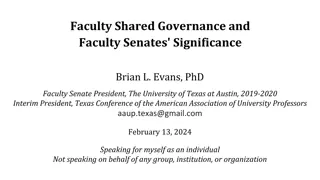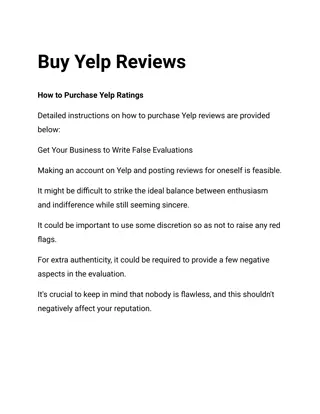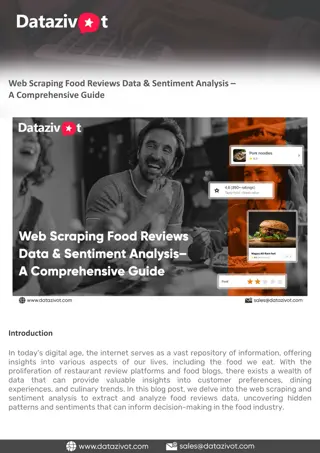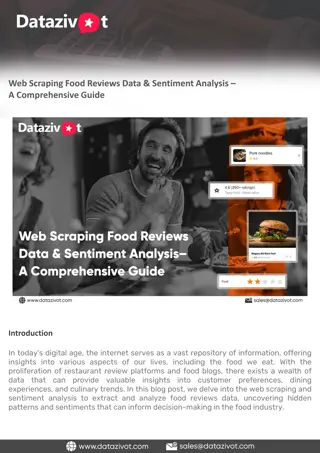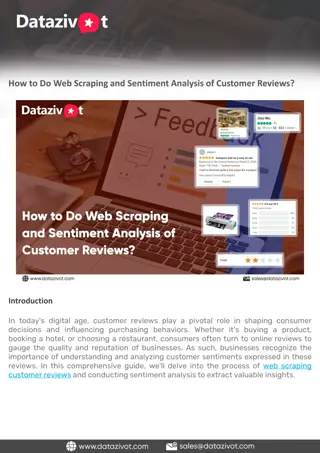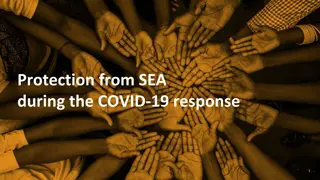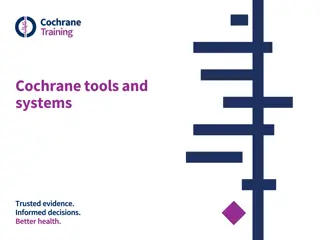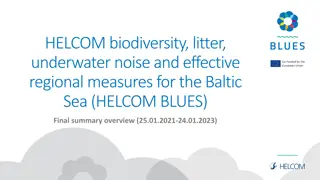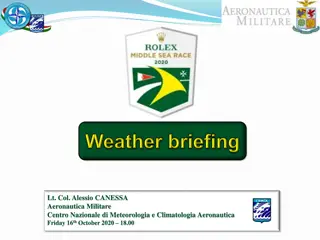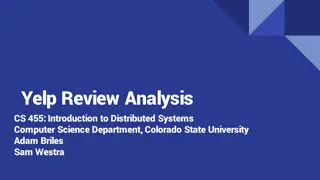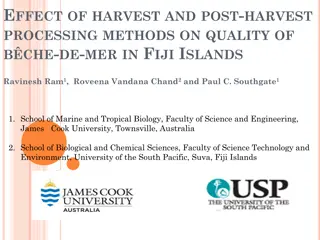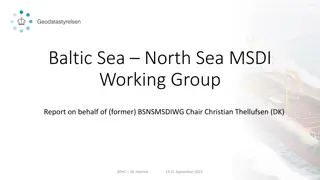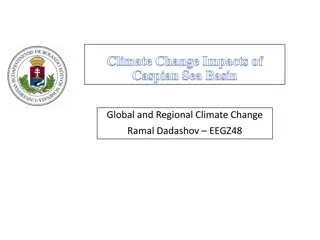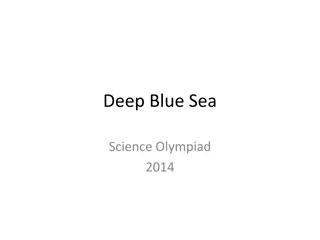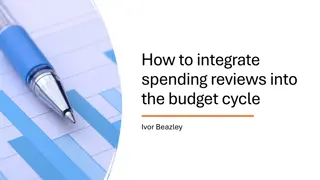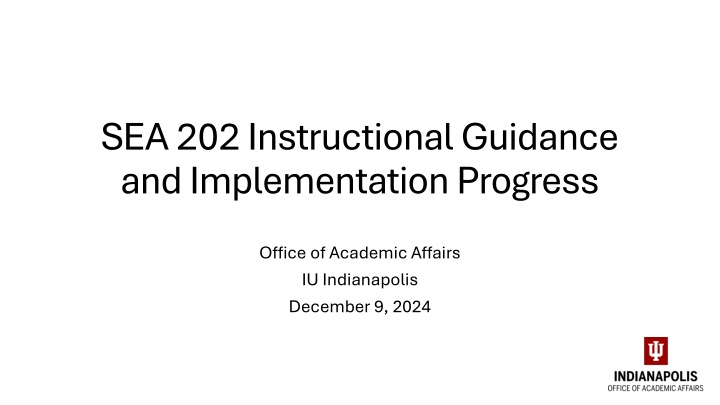
Faculty Criteria for Promotion and Tenure at IU Indianapolis
Learn about the new criteria introduced by SEA 202 and Indiana Code 21-39.5 for faculty promotion, tenure, and reappointment at IU Indianapolis. Explore the responsibilities of faculty members in fostering a culture of free inquiry and intellectual diversity within the institution, as well as the collaboration between IFC and Academic Affairs in integrating these criteria into campus guidelines.
Download Presentation

Please find below an Image/Link to download the presentation.
The content on the website is provided AS IS for your information and personal use only. It may not be sold, licensed, or shared on other websites without obtaining consent from the author. If you encounter any issues during the download, it is possible that the publisher has removed the file from their server.
You are allowed to download the files provided on this website for personal or commercial use, subject to the condition that they are used lawfully. All files are the property of their respective owners.
The content on the website is provided AS IS for your information and personal use only. It may not be sold, licensed, or shared on other websites without obtaining consent from the author.
E N D
Presentation Transcript
SEA 202 Instructional Guidance and Implementation Progress Office of Academic Affairs IU Indianapolis December 9, 2024
SEA 202/ Indiana Code 21-39.5 became effective July 1, 2024. The IU Board of Trustees and President Whitten have delegated to campuses the creation of procedures for compliance related to faculty work.
It adds the following criteria to faculty work For promotion, tenure, reappointment, or bonus, a faculty member must have: 1. Helped the university foster a culture of free inquiry, free expression, and intellectual diversity within the institution. 2. Introduced students to scholarly works from a variety of political or ideological frameworks that may exist within the curricula 3. While performing teaching duties within the scope of the faculty member s employment, refrained from subjecting students to views and opinions concerning matters not related to the faculty member s academic discipline or assigned course of instruction 4. Adequately performed academic duties and obligations. 5. Met any other criteria established by the board of trustees.
IFC and Academic Affairs have been collaborating on policy changes integrating SEA 202 criteria into the campus P&T Guidelines and the Faculty Guide.
Responsibilities of the Faculty Member Guidance on Classroom Instruction developed by colleagues at IU Bloomington and General Counsel
What does it mean to help the institution foster a culture of free inquiry, free expression, and intellectual diversity within the institution? Faculty are responsible for being able to articulate expertise in their discipline content and articulate how the structure of the course meets the desired learning outcomes they have identified. Responsibility of the faculty: Responsibility of the faculty: Ensure that course content is aligned with the course description and material presented is aligned with discipline area expectations/requirements. What does that mean: What does that mean: Faculty do not have to in advance of a course prove or make a statement about their expertise. It means that, if asked, faculty should be prepared to be able to defend their decisions about what they have selected in their course based on expertise and the requirements/expectations of the discipline area/curriculum/accreditation standards.
Clarifying expectations at unit level 1.Faculty at the unit level should engage in conversations about content expectations and curricula requirements, if they do not do this already. 2.Department Chairs/Deans will be able support challenges to instructional decisions when faculty provide clear rationale for the material that was covered and how it aligns with existing scholarship in that specific discipline. SEA 202 references that curricula are established by the Board of Trustees or by faculty as delegated by the Board. At IU the Board has delegated that authority to the faculty, with final approval by the Board.
What does it mean to introduce students to scholarly works from a variety of political or ideological frameworks that may exist within the curricula established by the Board of Trustees or faculty of the institution under authority delegated by the Board of Trustees? Individual faculty control the content for their classroom consistent with various requirements. Responsibility of the faculty: Responsibility of the faculty: Create course content that, within the focus of the course description, introduces students to scholarship from a variety of scholarly works and sources from a variety of political or ideological frameworks that may exist within the curricula. Expectation: Expectation: No set number of ideas need to be presented nor do faculty need to include content that is outside the scope of the course description. Faculty define the scope of the course content as the discipline expert.
Faculty responsibility in defining scope of course content Faculty are the content experts. If challenged, faculty must be able to defend their content selections through articulation of how the content aligns with discipline requirements/expectations. Scope of the course is defined by the individual faculty member and is aligned with the principles of academic freedom. Faculty should review content prior to each semester to ensure that they have a clear understanding of how they are defining the scope of their course.
Considerations with course scope Don t force course content due to concern about scope. Faculty have the academic freedom to define their course scope. Be sure you are referring back to all curricular requirements. Critically examine course content if concerns exist. Faculty should be able to defend their course content selections within their discipline area expectations/requirements. Special topic courses follow the same guidance that faculty control the scope of the course and are responsible for defending the content decisions, if challenged. Faculty have approved the courses being offered through shared governance and the BOT has signed off on those curricular offerings.
What could constitute outside of course scope? AAUP 1940 Statement of Principles of Academic Freedom and Tenure notes that when examining what is considered controversial faculty should avoid persistently intruding material which has no relation to their subject. Faculty should avoid including content in their course that they cannot defend as scholarly works from a variety of political or ideological frameworks that may exist within the curricula and associated with their content expertise. Faculty will design their own course and should keep to the syllabus content that was presented to the students at the start of the semester. Changing course material/assignments once the course has started could be questioned by students. Adjustments that are made to the course should be clearly communicated to students and faculty are encouraged to also articulate how those changes are aligned with how the course was originally presented. If challenged, faculty will need to defend those adjustments. Responding to students who bring up current events. Responding to students who bring up current events. Class discussions connected to course material play an important role in building students critical thinking and expression skills. Faculty should explain to students how discussions are connected to course content and to identified student learning outcomes. This will be an individual faculty decision and the faculty will need to be able to defend the connection to the course content, if challenged. Faculty should be prepared to indicate they can help students who are struggling with issues find the appropriate campus resources and support after the class as an alternative to engaging in a classroom discussion that is not part of the course content.
Recognizing and Celebrating University Supported Programming Question: Can faculty continue to recognize and encourage participation in University events/programs that are not directly connected to their course content? Individual faculty members will have the discretion to mention these types of events/programs. Faculty should avoid discussions in the class about events/programs that are not connected to their course content. If faculty include announcements about these programs, faculty should reflect on how they made decisions about what to and not to announce, and be prepared to defend their decisions, if challenged.
IU Indianapolis Implementation Guidance based on draft policy from IFC as of December 2024
SEA 202 and P&T A faculty member may not be granted tenure or a promotion if they are unlikely to meet intellectual diversity criteria. IFC P&T Guidelines Draft: The Chair or faculty member s supervisor determines the faculty member s likely performance of 1-3 in the Chair s letter using annual review evaluations for evidence.
SEA 202 and Post-Tenure Review The institution must adopt a policy that establishes disciplinary action including: Termination Demotion Salary Reduction Other disciplinary action as determined by the institution if a faculty member has failed to meet one or more of criteria 1-5. Frequency: Not later than 5 years after tenure and not later than every 5 years thereafter
FAQ Do I have to put together a dossier for post-tenure review? IFC and Academic Affairs have created a plan for faculty to be reviewed for intellectual diversity-related expectations as a part of the annual review using the faculty activity reporting system, Elements. This will enable campus administrators to run automated reports on intellectual diversity using annual review information and eliminate the need for faculty to create dossiers for post-tenure review.
SEA 202-Related Constraint on Reviews If an institution receives a pledge or statement as described, including any statement regarding DEI or related topics, the institution may not award: (1) admission, enrollment, or employment; (2) benefits; (3) hiring, reappointment, or promotion, (4) tenure to a person on the basis of the viewpoints expressed in the pledge or statement.
FAQs I do work related to DEI, can I still talk about that in my annual review and P&T materials? Nothing in SEA 202 limits a faculty member s ability to read, write, or teach about DEI or related topics. Faculty can present information about DEI in their annual review and P&T materials. The university may not evaluate faculty based on the viewpoints expressed, but rather the outcomes associated with the work (articles, courses, books, presentations, etc.).
SEA 202-Related Constraint on Reviews The IU General Counsel does not recommend that faculty write intellectual diversity-related statements for annual review, and units may not require it. When faculty present DEI-related statements in reviews, units must consider how the outcomes of the faculty member s work relate to the areas of faculty work: teaching, research/creative activity, and service. Evaluators should refrain from judgments based solely on the viewpoints expressed.
IU Indianapolis Constraints We need a process that works for all full-time faculty (3,792 AC1s, excluding post-docs), as well as: Adjunct faculty (1,665) Most who are not full-time IU employees (1,191 AC2s) Some who are university employees (474 academic overloads) Student academic appointees (579 AC3s) Clerkship/internship/clinical directors These individuals assign internship-related grades to students and are employed by IU. Note: Most Academic No-Pay Personnel (5,402) and post-docs (279) are not in scope for SEA 202.
IFC Intellectual Diversity Review Draft Intellectual Diversity (SEA 202-related criteria) is evaluated at annual review for all full-time faculty by the faculty member s supervisor using available evidence, specifically evidence of severe sanction related to intellectual diversity misconduct. It is reviewed before another assignment for a subsequent course for adjuncts, SAAs, and Clerkship/internship/clinical directors, and it is referred to in the subsequent offer letter.
Documenting Intellectual Diversity Review Full-time Faculty Annual Review: Faculty Annual Review/Elements P&T Review: Chair s Evaluation Letter Post-Tenure Review: Automated report from Elements; no dossier no dossier Adjuncts, SAAs, and Clerkship/internship/clinical directors: Contracts/Appointment letters: Intellectual Diversity should be included as an expectation of employment. For returning part-time faculty, new appointment letters should include a statement indicating that the employee previously met expectations.
FAQ Can schools/departments have faculty write a statement on intellectual diversity? The IU General Counsel does not recommend that faculty write intellectual diversity-related statements for annual review, and units may not require it.
FAQ Will the university or campus craft a general Canvas statement? Academic Affairs has drafted an optional statement for syllabi that schools, departments, or faculty could adopt. IFC committees may consider a campus statement. In this course, we will discuss scholarly works from a variety of frameworks accepted within the discipline, when applicable. I invite you to share recommendations for additional readings to contribute to the intellectual diversity of the course.
FAQs Can I be criminally prosecuted for allegations of intellectual diversity misconduct? SEA 202 adds intellectual diversity and related concepts to the expectations of employment for faculty at Indiana public universities. Failure to meet these expectations will result in a campus-specific faculty misconduct investigation. Nothing in the statute suggests that faculty will be investigated or prosecuted beyond the institution.
FAQs Do I need to start researching political opinions related to my area of expertise? Faculty are experts in their respective fields. As a result, they are expected to be aware of varying, accepted political or ideological frameworks within their disciplines. However, faculty are not required to do additional research on political or ideological opinions related to their disciplines.


